Siege of Iraqi town broken; U.S. lawmakers demand ISIS strategy
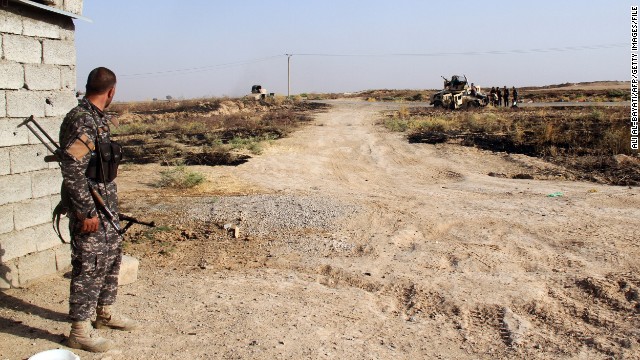 (CNN) -- Iraqi security and volunteer forces have
broken the siege of Amerli and have entered the town, retired Gen.
Khaled al-Amerli, an Amerli resident and member of its self-defense
force, told CNN on Sunday.
(CNN) -- Iraqi security and volunteer forces have
broken the siege of Amerli and have entered the town, retired Gen.
Khaled al-Amerli, an Amerli resident and member of its self-defense
force, told CNN on Sunday.
Iraqi state TV also reported that the siege had been broken.
The news prompted a wave
of celebrations across the town, which had been besieged by fighters
from the terror group ISIS. Residents waved the Iraqi flag and fired
celebratory shots into the air, al-Amerli said.
"Today is a day of victory for Iraq and the resilient people of Amerli," the retired general said.
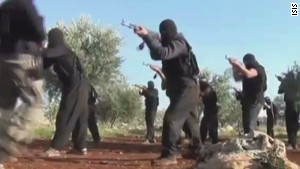 I
I
SIS vs. al Qaeda: How they're different
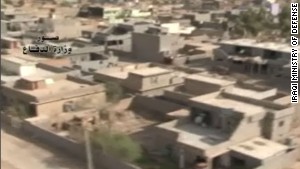
Siege of Iraqi town broken
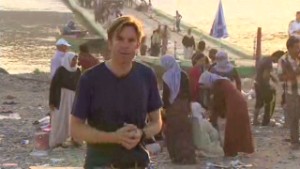
Waves of refugees flee to northern Iraq
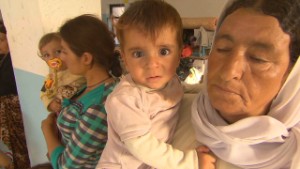
Yazidi refugees desperate for help
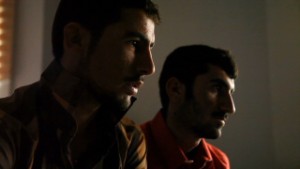
ISIS massacre survivors speak out
The breakthrough came
after the United States said it carried out airstrikes and dropped
humanitarian aid in Amerli to protect an ethnic minority that one
official said faced the threat of an "imminent massacre." Amerli is home
to many of Iraq's Shiite Turkmen.
Australia, France and the UK also participated in the aid drop.
The U.S. military
conducted "coordinated airstrikes" against ISIS targets as part of an
effort to support the humanitarian operation, Pentagon press secretary
Rear Adm. John Kirby said.
Video released by the
Iraqi Ministry of Defense was strikingly similar to the scenes of the
dire situation faced by the Yazidis, who were trapped on Mount Sinjar by
ISIS earlier this month. Dozens of people crowded helicopters, hoping
to be rescued. Scores more waited in the scorching summer sun for the
arrival of lifesaving supplies.
ISIS fighters had surrounded Amerli, 70 miles north of Baquba, since mid-June. The town's fewer than 20,000 residents have been without power.
"Residents are enduring
harsh living conditions with severe food and water shortages, and a
complete absence of medical services -- and there are fears of a
possible imminent massacre," U.N. High Commissioner for Human Rights
Navi Pillay said last week.
ISIS has called the Shiite Turkmen heretics and vowed to push them out.
Turkmen are descendants
of a Turkic-speaking, traditionally nomadic people, who share cultural
ties with Turkey. There are Sunni and Shiite Turkmen in Iraq, and they
account for up to 3% of Iraq's population.
Turkmen have been subjected to violence before at the hands of Sunni extremists.
Sen. John McCain,
R-Arizona, is calling on President Barack Obama and his administration
to address the threat posed by the Islamic State in Iraq and Syria.
"We have to have a clear
strategy dictated by a policy and that policy has to be we have to
defeat ISIS, not contain, not stop, but defeat ISIS, because they are a
direct threat over time to the United States of America," McCain said
Sunday on CBS' "Face the Nation."
McCain was referring to
the controversy that erupted last week after the President admitted on
Thursday "we don't have a strategy, yet" for airstrikes against ISIS
targets in Syria.
Dianne Fienstein,
McCain's Senate colleague and chair of the Intelligence Committee
Democratic senator, also urged the Obama administration Sunday to devise
a strategy for confronting ISIS.
Feinstein said on NBC's "Meet the Press" Sunday that ISIS is one of the most vicious terrorist movements ever.
"I think I've learned
one thing about this president, and that is he's very cautious. Maybe in
this instance too cautious. I do know that the military, I know that
the state department, I know that others have been putting plans
together. And so hopefully those plans will coalesce into a strategy
that can encourage that coalition."
Iraqi forces under a
Shiite-led regime, as well as ethnic Kurdish forces, have been battling
ISIS, which this year took over large portions of northern and western
Iraq and eastern Syria for what it calls its new caliphate.
Well before ISIS made
gains, Iraq was beset for years by sectarian violence, with Sunnis
feeling politically marginalized under a Shiite-led government since the
U.S.-led ouster of longtime leader Saddam Hussein in 2003.










0 comments:
Post a Comment